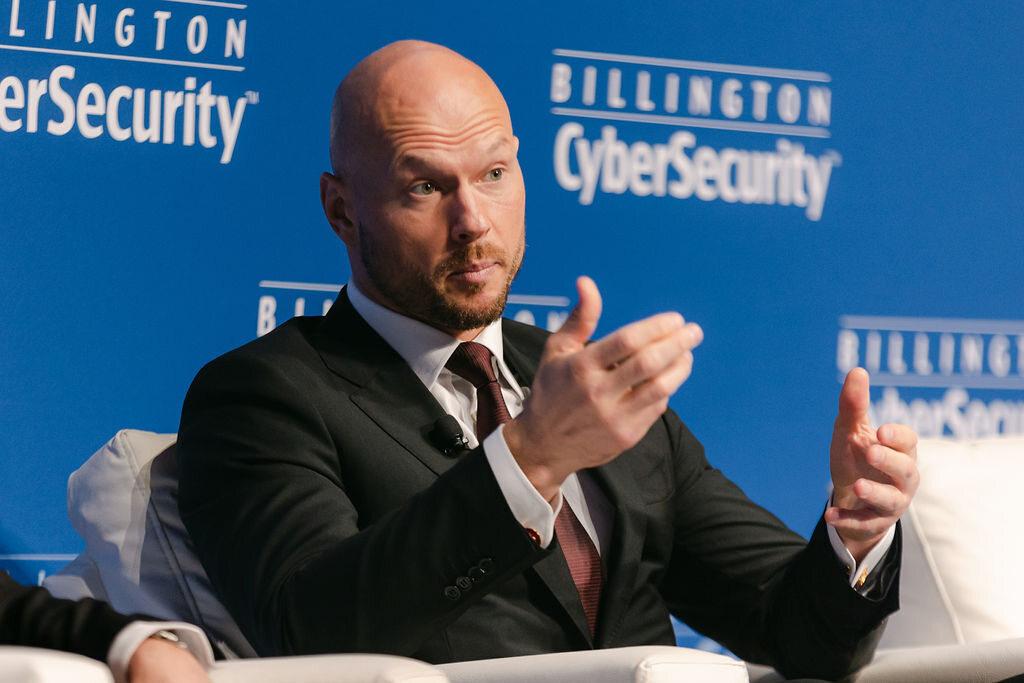Ukraine's Fusion of Cyber and Kinetic Warfare: Illia Vitiuk's Stand Against Russian Cyber Operations
The lines between cyber and kinetic warfare are increasingly blurred in Ukraine.
At the tip of the cyber spear fighting the Russian invasion, a digital warfare service has integrated a novelty: armed men.
“We are a mixture of intelligence officers, law enforcement officers, hackers and the SWAT team,” described Illia Vitiuk, head of the Cyber Security Department in the Security Service of Ukraine (SSU).
Vitiuk explained that when malicious cyber operators can be located, they have a rapid response team that acts in the real world. He told journalists how they managed to penetrate hackers’ networks and eavesdrop on their voice and text conversations.
Similarly, this war has also leveraged more traditional forms of cyber warfare.
“When [the Russians] attacked, they attacked our power grid; it was indeed, it could bring real casualties because during the winter and the late autumn in Ukraine, it's pretty cold, and when there was no electricity, there was no water and there was no heating, and it literally can lead to casualties,” Vitiuk said at the Billington Cybersecurity Summit, a recent event in Washington, D.C.
“It was extremely, brightly, visible during last autumn and winter when [the Russians] attacked our power grid simultaneously with missiles and cyber attacks in order to maximize the overall effect,” Vitiuk said. “Because some distribution companies could be out of operation because of cyber attacks, and some because of the missiles.”
Vitiuk is a Kyiv native and has worked with the SSU since 2009, when he graduated from the National Academy of the Security Service of Ukraine. In November 2021, he assumed his current position at the SSU.
He laid out which principles guide his agency's actions in this conflict.
“What are the three main objectives of cyber attacks? First, is to gather important intelligence; second, is destructive—when you destroy systems, digital systems and cause direct damage; and third, is psychological effect,” Vitiuk said.

We are a mixture of intelligence officers, law enforcement officers, hackers and the SWAT team.
Vitiuk addressed what many identify as independent hacker groups doing Russia's cyber bidding. In that respect, he explained that independence was not accurate.
“There is no Russian hack, actually; well, maybe it's a small, small percentage, but in fact, all of these groups like Killnet, Anonymous and Cyber Army of Russia with Deep Rock, etc, etc., we do believe that these are all groups created or orchestrated by the [Russian intelligence agency] GRU,” Vitiuk told journalists.
Part of Vitiuk's discussion at the event covered plans to develop a funding platform for cyber warfare donations from abroad, in cash or kind, as action in cyberspace requires abundant and sophisticated equipment.
Ukrainian President Volodymyr Zelensky will speak at the United Nations General Assembly in New York in September. He is expected to meet with world leaders like Benjamin Netanyahu, Israel's prime minister, as well as Recep Tayyip Erdoğan, the Turkish head of government.
He may also meet U.S. President Joe Biden in Washington, D.C., the New York Times reported.





Comments